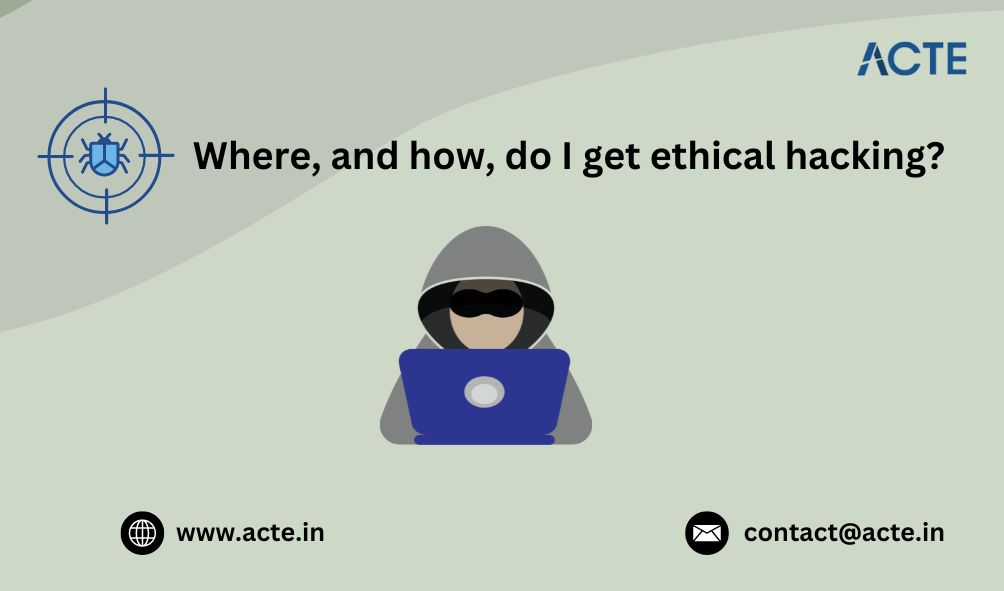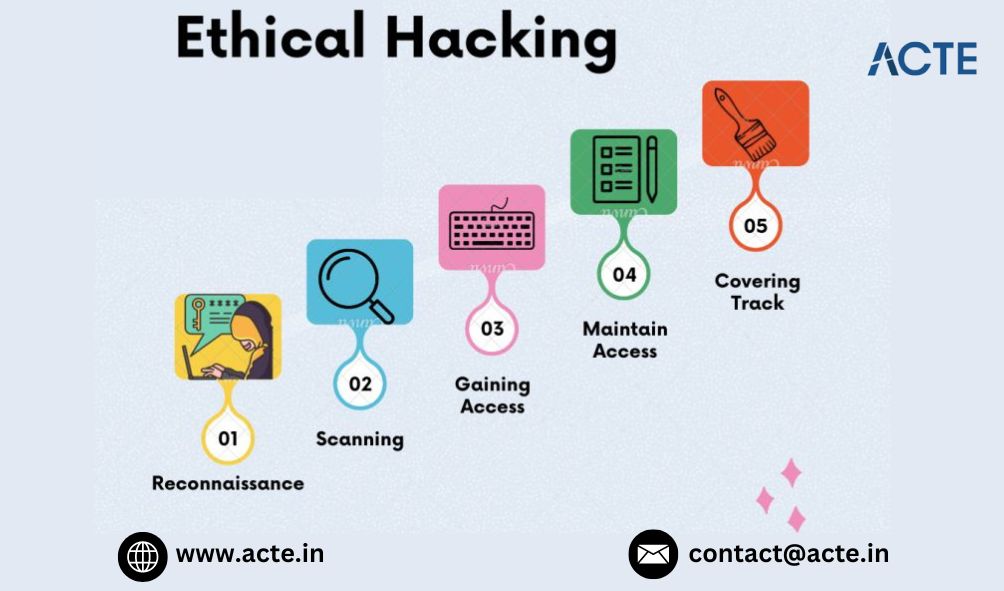Where, and how, do I get ethical hacking?
 GnanaAslin 2000
GnanaAslin 2000Ethical hacking, also known as penetration testing or white-hat hacking, involves legally examining systems, networks, and applications to identify and fix security vulnerabilities. With the growing prevalence of cyber threats, the need for ethical hacking expertise has increased. This guide explains where and how to develop the skills necessary to become a proficient ethical hacker. We will explore six key areas: formal education and certifications, online courses and platforms, self-study and hands-on practice, community engagement and networking, internships and practical experience, and staying updated with industry trends. If you're interested in learning more about Ethical Hacking, consider enrolling in Ethical Hacking Online Training. For comprehensive training, check out Ethical Hacking Online Training. Following these steps will help you effectively learn ethical hacking and contribute to securing digital environments.

Formal Education and Certifications
A strong foundation in ethical hacking often begins with formal education in cybersecurity or related fields. Enrolling in degree programs like a Bachelor’s or Master’s in Cybersecurity, Information Technology, or Computer Science provides a comprehensive understanding of the principles and practices essential to ethical hacking. These programs typically cover subjects such as network security, cryptography, computer forensics, and ethical hacking methodologies.
Certifications are another crucial aspect of formal education. Recognized certifications like Certified Ethical Hacker (CEH), Offensive Security Certified Professional (OSCP), and CompTIA Security+ validate your skills and knowledge. These certifications, which often require passing rigorous exams, demonstrate your proficiency in ethical hacking techniques and tools, enhancing your credibility and employability in the cybersecurity field.
Online Courses and Platforms
Online courses and platforms provide flexible and accessible ways to learn ethical hacking. Websites like Coursera, edX, Udemy, and Cybrary offer a variety of courses tailored to different aspects of cybersecurity and ethical hacking, ranging from beginner to advanced levels, often taught by industry experts.
Interactive platforms like TryHackMe and Hack The Box offer hands-on learning experiences, allowing you to practice ethical hacking in controlled environments. These platforms provide challenges and labs that simulate real-world scenarios, helping you apply theoretical knowledge to practical situations. Many of these online courses are self-paced, allowing you to learn at your own convenience and speed.
Self-Study and Hands-On Practice
Self-study is an essential part of learning ethical hacking. This involves researching and studying various resources such as books, blogs, and online tutorials. Books like “Hacking: The Art of Exploitation” by Jon Erickson and “The Web Application Hacker's Handbook” by Dafydd Stuttard and Marcus Pinto are excellent resources covering a wide range of topics in ethical hacking.
Creating a home lab is crucial for hands-on practice. You can set up virtual environments using tools like VirtualBox or VMware to simulate networks and systems for testing purposes. Using distributions like Kali Linux, which come pre-loaded with numerous penetration testing tools, allows you to practice various hacking techniques. Engaging in Capture The Flag (CTF) competitions and other hacking challenges also provides practical experience and helps refine your skills. For those in Hyderabad looking to enhance their cybersecurity skills, consider Ethical Hacking Training In Hyderabad. Explore Ethical Hacking Training In Hyderabad to gain practical knowledge and certification in this critical field.

Community Engagement and Networking
Engaging with the cybersecurity community is vital for learning and growth. Joining forums and online communities such as Reddit’s r/netsec, Stack Exchange’s Information Security community, and various cybersecurity Discord servers allows you to discuss topics, seek advice, and share knowledge with like-minded individuals.
Attending cybersecurity conferences, both virtual and in-person, such as DEF CON, Black Hat, and BSides, provides opportunities to network with professionals and stay updated on the latest trends and technologies. These events often feature talks, workshops, and networking sessions that offer valuable insights and connections. Participating in local cybersecurity meetups and groups can also help you build a professional network and learn from experienced practitioners.
Internships and Practical Experience
Gaining practical experience through internships and real-world projects is invaluable for aspiring ethical hackers. Internships with cybersecurity firms, IT departments, or government agencies provide hands-on experience and expose you to real-world security challenges. They allow you to apply your theoretical knowledge in practical situations and learn from seasoned professionals.
Volunteering for non-profit organizations or contributing to open-source security projects can also provide practical experience. Many organizations welcome assistance with securing their systems, and these opportunities can help you build a portfolio of work that demonstrates your skills. Practical experience is crucial for understanding the complexities of cybersecurity and developing problem-solving abilities.
Staying Updated with Industry Trends
The field of cybersecurity is constantly evolving, making it essential to stay updated with the latest trends, tools, and vulnerabilities. Following cybersecurity news sites and blogs such as Krebs on Security, The Hacker News, and Dark Reading keeps you informed about the latest developments in the field.
Listening to cybersecurity podcasts, attending webinars, and subscribing to industry newsletters are effective ways to stay current. Engaging with thought leaders and influencers on social media platforms like Twitter and LinkedIn can also provide valuable insights and keep you connected with the cybersecurity community. Continuous learning and staying updated are crucial for maintaining your relevance and effectiveness as an ethical hacker.
Conclusion
In conclusion, learning ethical hacking requires a multifaceted approach that combines formal education, online courses, self-study, hands-on practice, community engagement, practical experience, and staying updated with industry trends. By pursuing a degree or certifications, utilizing online learning platforms, setting up a home lab for practical practice, engaging with the cybersecurity community, gaining real-world experience through internships, and keeping abreast of the latest developments in the field, you can acquire the skills and knowledge needed to become a proficient ethical hacker. With dedication and persistence, you can make significant contributions to enhancing cybersecurity and protecting digital environments from threats.
Subscribe to my newsletter
Read articles from GnanaAslin 2000 directly inside your inbox. Subscribe to the newsletter, and don't miss out.
Written by
